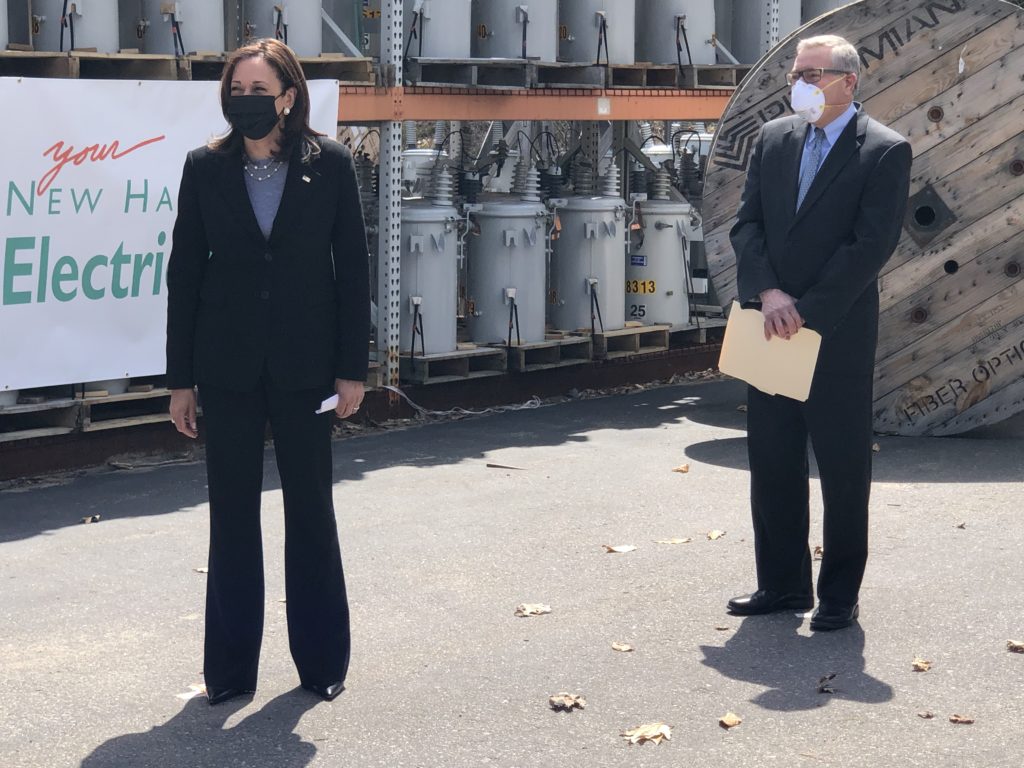
As the Biden administration proposes a $100 billion investment in rural broadband, Vice President Kamala Harris praised the work of electric cooperatives in delivering affordable broadband internet access, comparing it to the initial co-op electrification efforts in the 1930s.
“It’s the same thing that our country decided to do in 1936, saying, ‘Let’s get electricity to everybody,’ and rural America should not be left out of that priority,” Harris said during an April 23 visit to New Hampshire Electric Cooperative.
“And part of the American Jobs Plan is not only $100 billion getting broadband to everyone, but with an emphasis on co-ops, with an emphasis on the nonprofits, with the emphasis on the ones that are being led by the community.
“And so that’s why we’re here today: to see it and to understand that this really is an incredible moment in our history. Not unlike what our country did in the 1930s with electricity we can do now with broadband. So, let’s get it done.”
Harris was welcomed to the Plymouth-based co-op by Sen. Maggie Hassan, D-N.H., her former colleague in the U.S. Senate, along with NHEC President and CEO Steve Camerino and co-op board members and staff.
As the COVID-19 pandemic stressed the crucial importance of broadband, NHEC last year secured two grants from the state’s broadband expansion program that received CARES Act funds. Within three months, the co-op used the aid to build 100 miles of fiber networks in four towns and provide nearly 1,000 previously unserved members with access to high-speed internet.
“That’s phenomenal,” Harris said of the 100-miles-in-100-days feat. “What you’re doing here on the ground, literally, you need the support, you deserve the support from our federal government.”
Camerino attributed the co-op’s efficiency to its member focus and said its not-for-profit status keeps broadband affordable. The co-op wants to deliver broadband to all 118 towns it serves.
“Having broadband throughout our service territory actually will help us further our strategic plan as an electric cooperative because it will help with grid modernization and support widespread adoption of distributed energy resources, which is part of our vision for the future,” he told the vice president.
“But we really can’t do that alone. Just like back in the ’30s, we need some federal support so that we can be sure that we can get this off the ground and not have electric consumers bearing the financial risk.”
Jeff Bird, NHEC line design technician, described building the co-op’s fiber backbone infrastructure and walking rural pole routes, where he met members who were “extremely happy with the fact that we were going to be having high-speed broadband.”
The vice president got a firsthand look at equipment for building a fiber network and thanked the co-op for its leadership.
“I’m so glad that you all are doing this work and that we could bring attention to it as a model for our country of what can be done and what’s possible and the talent that we have on the ground to get it done,” Harris said.
Read more:
How the Biden Administration Can Close the Digital Divide